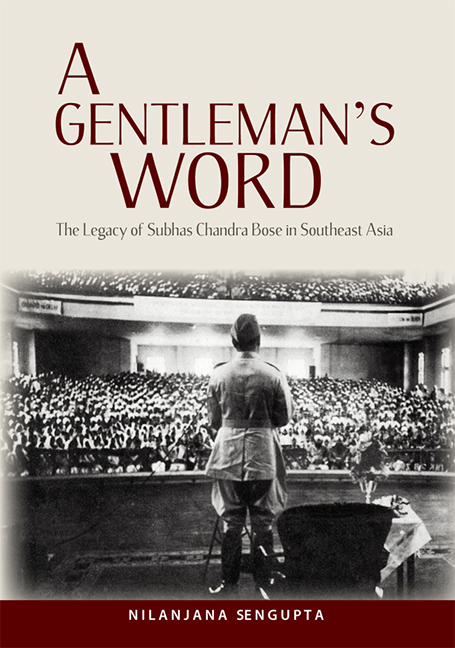Book contents
- Frontmatter
- Dedication
- Contents
- Foreword by S. R. Nathan
- Message by K. Kesavapany
- Message by Joyce C. Lebra
- Preface
- Acknowledgements
- 1 A Journey: A Dream
- 2 An Outsider in the Crescent and a Trial for Treason
- 3 End of a War, Beginning of Others
- 4 We are the Multitudes
- 5 “They Have Done Enough at Home”: Escape from the Shadows
- Bibliography
- Index
- About the Author
- Plate Section
Foreword by S. R. Nathan
Published online by Cambridge University Press: 21 October 2015
- Frontmatter
- Dedication
- Contents
- Foreword by S. R. Nathan
- Message by K. Kesavapany
- Message by Joyce C. Lebra
- Preface
- Acknowledgements
- 1 A Journey: A Dream
- 2 An Outsider in the Crescent and a Trial for Treason
- 3 End of a War, Beginning of Others
- 4 We are the Multitudes
- 5 “They Have Done Enough at Home”: Escape from the Shadows
- Bibliography
- Index
- About the Author
- Plate Section
Summary
Dozens of books, many recent, and scores of articles by scholarly researchers have been written about Subhas Chandra Bose and his role and exploits in the political struggle he waged towards gaining independence for India from the British Raj. His political and diplomatic efforts and military exploits in that struggle have been extensively researched in India and in Southeast Asia and published. With the passage of time, his sacrifices and determined efforts will become legendary to young Indians and eventually fade from their memory. What has not been distilled from his voluminous writings, speeches and exhortations about the social, economic and inter-racial and religious problems of India and Indian society, would be worth further researching.
Ms Nilanjana Sengupta has in her publication touched on some of the societal problems that concerned Bose and how he sought to address them from his early times, while he was engaged in leading the Municipal Corporation of Calcutta and while profiling himself actively as a budding freedom fighter. Ms Sengupta has drawn attention to his efforts to forge Hindu- Muslim unity; his interest in the emancipation of Indian women; and his attempts to prevent the exploitation of peasants and workers in India, among other issues. What comes to the fore from this research is his inexhaustible concern for the variety of social and economic problems that afflicted Indian society and cried out for redress.
Ms Sengupta has discovered in the course of her research how Bose took the opportunity, while establishing his Indian National Army and the Rani of Jhansi Regiment, to consider the possibility of translating some of his beliefs and ideas and trying them out, among the men and women in the two military organizations that he established in Southeast Asia.
This book by Ms Sengupta should help stir memories in India, if not in the state of West Bengal, to encourage further research and understanding from his writings and speeches, the views he expressed for addressing India's economic and societal problems, and consider which of them would be worthy of trying out in the context of today's India.
- Type
- Chapter
- Information
- A Gentleman's WordThe Legacy of Subhas Chandra Bose in Southeast Asia, pp. ix - xPublisher: ISEAS–Yusof Ishak InstitutePrint publication year: 2012



